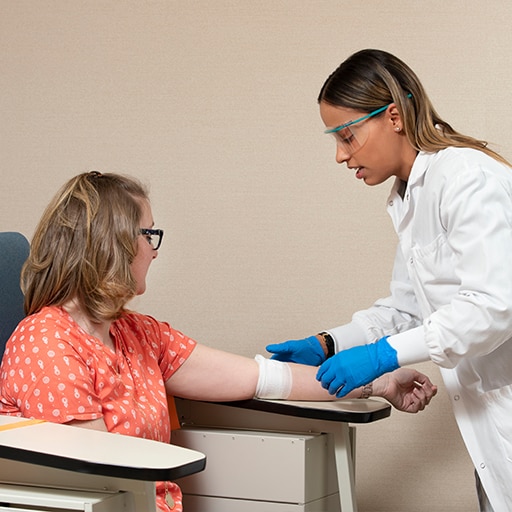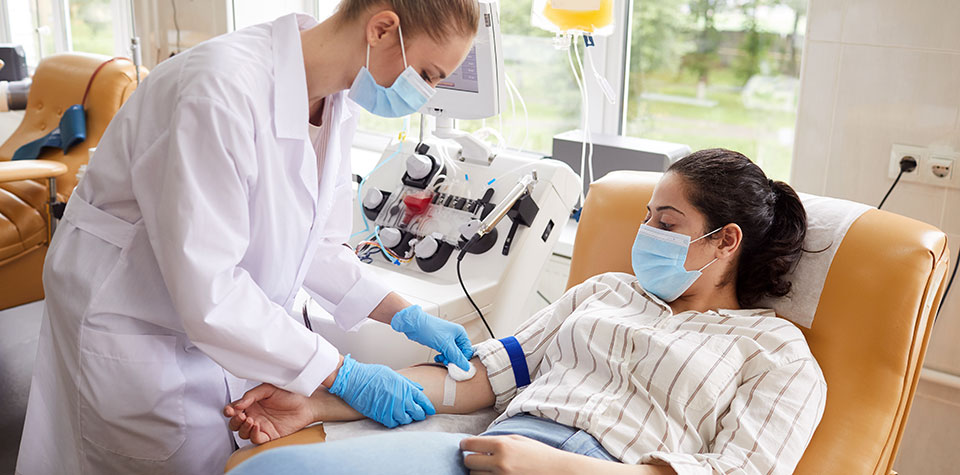Northeast Medical Institute CNA Training Stamford: Professional Guideline for Aspiring CNAs
Northeast Medical Institute CNA Training Stamford: Professional Guideline for Aspiring CNAs
Blog Article
Critical Aspects to Take Into Consideration When Selecting the Most Appropriate Medical College Educational Program for You
Picking the most suitable medical institution curriculum is a critical decision that can substantially influence your instructional journey and future profession course. As aspiring medical experts, the choice of educational program must align with your personal knowing style and job ambitions.
Personal Knowing Style

Clinical colleges that use varied teaching techniques and sources can fit various learning styles, promoting a comprehensive and dynamic educational environment. Eventually, comprehending individual understanding choices encourages pupils to make informed choices concerning their clinical education and learning, setting a solid foundation for their future occupations in health care.
Career Objectives Positioning

Additionally, lining up profession goals with the clinical school educational program can likewise improve motivation and engagement throughout the educational trip. They are a lot more most likely to remain devoted and focused to their researches when pupils see the straight importance of their coursework to their future job. As a result, when selecting a clinical college curriculum, it is vital to very carefully take into consideration just how well it lines up with one's occupation purposes to guarantee a successful and fulfilling expert path.
Mentor Methodologies
Taking into consideration the positioning of profession purposes with the selected clinical institution educational program, an assessment of the mentor techniques used comes to be crucial in shaping the discovering experience. The performance of a clinical school educational program greatly relies upon the teaching approaches utilized by the organization. Different training methods, such as lectures, small team discussions, problem-based learning, simulation-based training, and hands-on professional experience, can considerably affect exactly how well students keep and comprehend info.
Lectures are a typical but still commonly utilized technique for supplying content to a big group of students efficiently. Tiny group conversations foster cooperation, vital reasoning, and communication abilities among pupils. Problem-based learning urges energetic participation, self-directed understanding, and problem-solving capabilities. Simulation-based training allows students to practice professional abilities in a controlled environment prior to connecting with real people. Hands-on this link clinical experience offers a direct understanding of individual treatment and clinical practices.
When selecting a medical school curriculum, striving students ought to take into consideration the teaching methodologies utilized to make certain that their understanding preferences and staminas line up with the academic technique of the organization.
Curriculum Flexibility
When reviewing medical school programs, assessing the level of educational program flexibility is vital for prospective pupils seeking a tailored educational experience. Curriculum versatility describes the degree to which students can personalize their knowing courses within the medical school curriculum. A curriculum that uses adaptability permits trainees to pursue their interests, focus on areas where they need more support, and participate in discovering experiences that align with their profession objectives.

Prospective clinical pupils ought to think about how a clinical college's curriculum versatility straightens with their understanding choices, profession desires, and straight from the source personal objectives. By selecting a program that uses the ideal equilibrium of framework and flexibility, students can enhance their academic experience and prepare themselves for successful occupations in medicine.
Medical Exposure Opportunities
Discovering the sensible application of medical expertise, scientific exposure chances play a crucial role in forming a detailed medical education and learning. These opportunities provide pupils with important hands-on experience in actual medical care setups, enabling them to connect the void between concept and practice. When thinking about clinical college educational program, the quality and amount of clinical direct exposure have to be meticulously assessed.
Efficient professional direct exposure must supply a varied series of experiences throughout different specialties, guaranteeing that pupils are revealed to various medical scenarios and patient demographics. Exposure to outpatient facilities, inpatient wards, surgical movie theaters, and emergency divisions can assist students establish a well-rounded understanding of various elements of health care shipment. Additionally, possibilities for community-based care and communications with underserved populaces can foster a deeper recognition for the social factors of health.
Moreover, the presence of encouraging professors and mentors throughout these medical experiences can considerably enhance the discovering procedure. Professors support and positive feedback can aid trainees assess their medical experiences, recognize areas for enhancement, and improve their decision-making abilities and medical abilities (Northeast Medical Institute CNA Classes Near me Stamford). On the whole, robust scientific exposure opportunities are crucial for preparing future doctors to provide quality patient treatment properly
Conclusion
In final thought, see here now when selecting a clinical school curriculum, it is important to consider your personal discovering style, placement with occupation purposes, teaching approaches, educational program flexibility, and medical exposure opportunities. These elements play an important function in identifying one of the most appropriate program for your specialist and educational development. Ensure to completely examine each element to make a notified choice that will best support your growth in the clinical field.
Understanding one's individual learning style is crucial when picking a clinical institution curriculum. By recognizing one's discovering style early on, aspiring medical pupils can strategically choose an educational program that provides to their strengths, eventually boosting their knowing experience and academic success.
When evaluating clinical college programs, evaluating the level of educational program adaptability is necessary for possible students seeking a tailored academic experience. Educational program adaptability refers to the level to which pupils can personalize their discovering paths within the medical institution educational program.In conclusion, when choosing a clinical institution curriculum, it is essential to consider your personal discovering style, alignment with job purposes, educating approaches, curriculum flexibility, and professional direct exposure possibilities.
Report this page